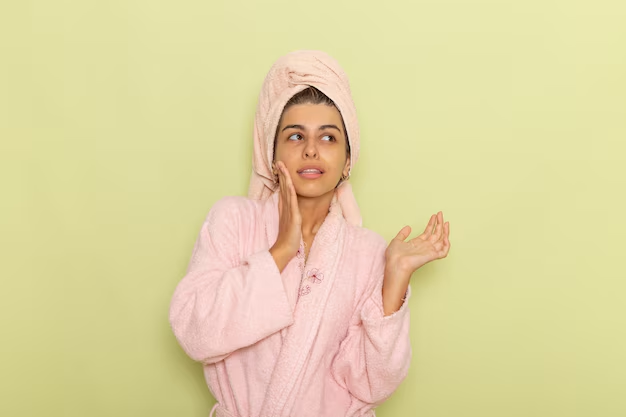Things Not to Apply on Your Skin:- We all understand the importance of taking good care with our skin, but do you know which products or home remedies should never come in contact with it? From home remedies and cosmetics to other items such as skincare products and even food supplements, many substances contain ingredients which could irritate or harm it and it’s vital that we are aware of what to avoid in order to keep our complexion looking its best and healthy.
Read on to discover the top ten items to avoid when applying lotion to your skin, from kitchen items and store-bought items alike. Keeping your skin in top condition is vitally important, so ensure you know what not to put on it by reading up!
Things You Should Never Put On Your Skin:-
1. Home Remedies To Avoid
Home Remedies to Avoid Many people utilize home remedies on a regular basis, with some being beneficial in certain instances but some that should definitely be avoided for skin care purposes. Some remedies may work for some while causing extreme irritation or other forms of damage in others – be sure to do your research on any potential remedies before applying them directly onto your skin.
Baking soda, lemon juice, honey and apple cider vinegar are among the most widely-used home remedies to remove dark spots or blemishes from skin. Unfortunately, they can also do irreparable damage – for instance baking soda can be highly alkaline and cause burning, itching and irritation; lemon juice contains highly acidic compounds which are very effective at getting rid of dark spots from skin but may cause further harm as it is highly acidic itself.
Honey is an antibacterial and antiseptic agent that can help soothe redness and irritation on the skin when used incorrectly, while apple cider vinegar serves as an astringent but may have adverse reactions when applied directly. Before making decisions about home remedies for use on your skin, make sure you do your research first to make an informed decision!
2. Products To Avoid
There are a wide range of products that can have adverse reactions on skin when used incorrectly, with some working great for some users while others causing severe damage. It is wise to read labels of each product you apply before doing so to minimize potential harm, so a list of such items includes:
Face Washes: While cleanser may seem like the ideal way to keep your face clean, many contain harsh ingredients that could potentially irritate the delicate skin on your face. Be sure to read up on what ingredients are included before selecting one that may cause harm to your delicate facial tissue. – Cleansing Brushes: While cleansing brushes are great at removing makeup and other impurities from skin surfaces, some brushes can also be too abrasive and cause irreparable damage if used too frequently or on sensitive skin types – choose carefully what best fits for your type!
Scrubs: Scrubs can be great at exfoliating skin and clearing away impurities, but some can also be too abrasive and cause damage. Be sure to choose one suitable for your skin type without harsh ingredients. – Toners: Toners can also be great for the skin; just be mindful about reading its ingredients prior to applying any to your face as strong ones could potentially do more harm than good.
Toners: Toners can be wonderful for the skin, but some varieties may be too harsh and cause damage. Before applying any toner to your face, always read and understand its ingredients carefully in order to avoid those which are too strong.
3. Lemon
Lemon is an exceptional ingredient when it comes to beauty products. Packed with vitamin C, lemon can brighten skin tone and reduce dark spot appearance while protecting against environmental damage. However, when applied directly onto skin it should never be done so without prior testing first! Lemon’s citric acid can be very irritating, leading to redness, stinging, burning sensations or worse, sunburn damage. Hence it would be wiser not to use lemon if sunbathing or being exposed to direct sunlight is planned in near future.
Lemon may make your skin more susceptible to other products, so it’s wiser to avoid it altogether. There are other ways you can enjoy its many benefits for skin health; natural face masks with lemon juice may help some individuals, while adding a drop of lemon essential oil can boost your moisturizer regiment. But for best results, avoid lemon altogether!
4. Household Cleaning Products To Avoid

Cleaning products can help keep your home tidy, but when selecting which ones to use it’s important to choose wisely. Many household products can be too strong for skin, leading to irritation or damage. Always read ingredient lists carefully in each product to avoid potential issues; some examples of what not to use: dish soap: While dish soap may seem like an ideal way to clean dishes it can actually damage skin in ways similar to dish detergent causing redness, irritation and other damage; always opt for gentle cleansers that suit your specific skin type instead.
Cleaners: Cleaning products can help keep the house tidy, but some can be too strong for sensitive skin and cause irritation or even damage. Always read the ingredients of any cleaner that contains harsh ingredients before purchasing one and use with caution if they contain such components. – Washing Soda: Although washing soda offers an alternative to bleach, its strength could cause skin irritation or damage if applied directly onto skin surfaces. Therefore it is wise to use washing soda sparingly when cleaning your home, while taking care not to apply directly onto yourself when cleaning surfaces such as tables or chairs! – Washing Soda: Although washing soda makes an effective bleach alternative, its potency should not cause skin damage when applied directly onto skin surfaces and should only be applied directly onto surfaces without skin contact or directly from surfaces in direct contact.
5. Personal Hygiene Products To Avoid
There are many daily items we use that could actually be damaging to our skin. Be wary when selecting personal hygiene products as many may contain ingredients which could wreak havoc, so always read labels thoroughly prior to applying anything directly onto the skin. Some personal hygiene items you should avoid using include:- Hair Brushes: While hair brushes can help you get smooth and clean hair, too much abrasion could potentially harm skin tissue; for best results choose gentle brushes suitable for both hair type and skin type when choosing them for use on hair types/skins
Loofahs can be great tools for deep cleaning your skin, but be wary – loofahs may be too aggressive and damage it, so select one suitable to your skin type to prevent unnecessary damage. Select a gentle loofah that doesn’t rub too aggressively against it! – Toothpaste: Toothpaste can keep teeth clean and healthy but can damage the skin over time if applied directly onto it; for optimal results use gentle toothpaste designed specifically to care for sensitive skin types instead. – Toothpaste shouldn’t come into direct contact with it’s surface. Select one suitable to your skin type before applying directly onto skin surface areas of course.
6. Toothpaste
Have You considered applying toothpaste directly onto your skin? Now’s the time to stop! Toothpaste is one of the 10 Things Not To Put On Your Skin. While this may seem like a good idea at first, toothpaste contains abrasive ingredients such as baking soda and hydrogen peroxide which may dry out and irritate the surface layer of skin cells, causing further harm than good.
Since toothpaste contains ingredients like menthol that may cause allergic reactions in sensitive skin types, using toothpaste could worsen existing conditions. Instead, look towards natural solutions which have proven more reliable.
7. Ingredients To Avoid
Although certain ingredients may seem beneficial at first, they can actually be too harsh on the skin and cause harm. Therefore, before choosing any product containing such harsh substances like alcohol (which might seem like an effective way to clean), always read its ingredients list thoroughly and avoid those listed here if applicable. Some examples include: – Alcohol
Fragrance: While fragrances may smell wonderful, they may also be too strong for your skin and cause damage. To stay safe and prevent this happening to yourself, select products without fragrance and avoid applying them directly onto the skin. – Lye: While lye can provide an alternative soap alternative solution, its strength should never become overwhelming or cause lasting skin damage. Choose products containing moderate levels of lye in their products before applying directly onto skin.
8. Hot Water

Hot Water should never be applied directly to your skin; while it may feel good in the short-term, over time its impact can be devastating. Hot water has the power to strip away all its natural oils and leave it dry and flaky; furthermore it may irritate and redden sensitive skin as well as cause inflammation or burning sensations. Therefore it’s wise to stick with lukewarm water when caring for your skin – this way your appearance and feel are at their optimal!
9. Popular Ingredients To Avoid
While many ingredients can be beneficial to skin health, some may be too strong. Always read the ingredients list of each product you apply to your skin to avoid those which contain too many active ingredients that could irritate or aggravate. Some popular examples of ingredients to avoid are Alpha Hydroxy Acids (AHAs): While AHAs may provide excellent exfoliation results, too strong of an application could damage it severely; choose mild AHA products and limit how often you apply them on your skin.
Benzoyl Peroxide: While benzoyl peroxide can be an effective acne treatment, its harsh nature could damage your skin. Be wary when selecting products containing benzoyl peroxide as this could irritate or dry out your complexion. Choose products which use it sparingly and avoid applying directly onto your skin. – Cocamidopropyl Betaine: Cocamidopropyl Betaine can make a good cleanser; however it can be too strong for sensitive skin types – look for something mild enough. – Cocamidopropyl Betaine can also cause problems. Make sure when selecting products containing it that contains sufficient quantities so it won’t do damage when applying directly onto the surface.
10. Natural Ingredients To Avoid
Some of the most widely-used natural ingredients can also be among the harshest on skin, so make sure to read each product’s ingredient list and avoid harsh ones like aloe. Some examples of natural ingredients to watch out for include aloe (although great at treating burns), aloe vera gel, and chamomile; these should only be applied sparingly and should never be directly applied onto your skin!


